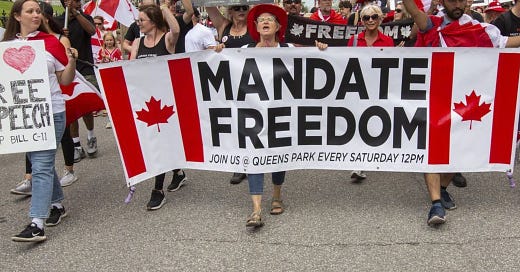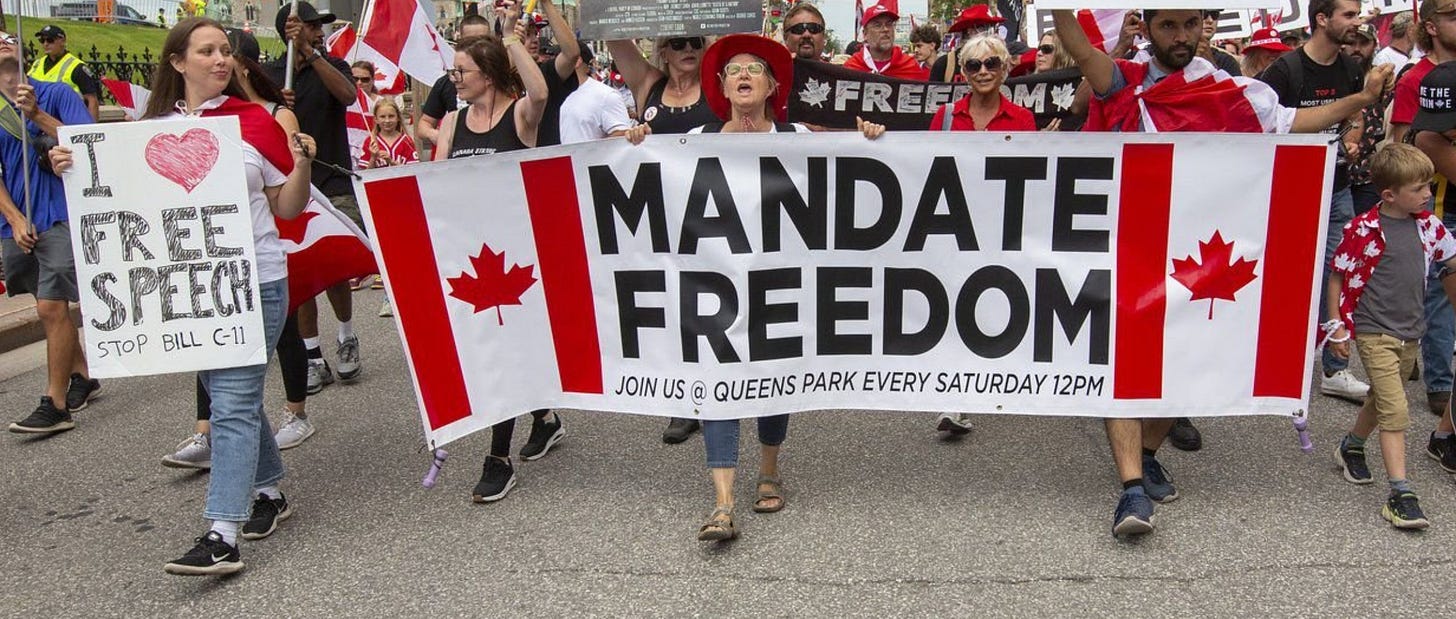They say that you don't know what you got ’til it's gone, but there's a lesser known truth that goes something like this:
You don't know what you're missing if you've never had it.
The only reason people in this part of the world long for the weekend all week long is because they've had a weekend before. They've experienced what it's like to be relatively free of responsibility and able to go and do whatever they like.
Some people don't even have that concept, let alone the luxury.
Yeonmi Park, a North Korean defector, escaped to freedom as a thirteen-year-old girl over the border to China. She was sold as a sex-slave, and eventually escaped to the United States.
Hers is an astounding success story, regardless of the apparent inconsistencies. She is the author of two books, and in 2020, she graduated from Columbia University with a degree in Human Rights Studies.
Recalling her motives for escaping North Korea, she had this to say:
I didn't know what freedom was. I didn't even know the word. I didn't know the concept. I never heard of that word, 'freedom.' To me, the happiest thing was having food.
Language is how we convey concepts. If you don't have a word for “freedom”, you don't have the concept either. This is why I've opined several times in these very pages on the current War on Words. Changing our language can change the course of our existence - for good or for ill.
During her time at Columbia, Yeonmi Park was astounded to hear students who were American citizens complain about how oppressed they were - how white culture - the very culture that welcomed her - was by it's very nature oppressive.
One thing Park realized that very few people in this part of the world do, is that many people who are truly oppressed don't even realize they're oppressed. They don't know anything else.
North Korea recently enacted a brand new law called the Law on the Elimination of Reactionary Thought in order to prevent the spread of outside ideas and influences, and materials such as movies, dramas, music, and books.
By the way, North Korea's official name is the Democratic People's Republic of Korea. I wonder if the people who live there believe they're living in a democracy…
In July of 2021, the Rodong Sinmun, which is the official government newspaper published this in one of its editorials (I'm assuming this is a translation):
The ideological and cultural penetration under the colourful signboard of the bourgeoisie is even more dangerous than enemies who are taking guns.
More dangerous than guns, eh? I'm pretty sure it's no better over there now in 2023.
The fact is, words are powerful. They're powerful because they embody concepts. They're deadly to oppressive regimes who rely on everyone saying and believing the same thing. Freedom of speech is freedom.
In China, Beijing has banned these words:
Winnie the Pooh - because apparently people like to compare Xi Jinping to old Winnie.
Baozi (steamed bun) - evidently another presidential nickname.
Dalai Lama - maybe for obvious reasons, but also because he is a symbol of Tibetan independence.
Tibetan independence
Soviet Jokes - I guess humour is not a big thing there either.
Go, Hong Kong
And many more…
Of course, North Korea and China are only two of a growing list of oppressive regimes in the world, but all of them have at least one thing in common, which appears to be some version of: control the language and you'll control the thought.
In his essay, Politics And The English Language, George Orwell said that language is not a natural growth, but “an instrument which we shape for our own purposes.”
This is as true in a democratic, free society as it is in a communist dictatorship. In the West, we don't ban words per se, we simply change their meanings.
A perfect example is Merriam Webster's definition of “female”. These are the first three entries (emphasis mine):
a : of, relating to, or being the sex that typically has the capacity to bear young or produce eggs
b : having a gender identity that is the opposite of male
c : made up of usually adult members of the female sex : consisting of females
I'm sure I don't need to tell you what their definition of “male” is.
Lest you presume that the first definition of the word is the more proper and common one, Merriam Webster had this to say (and don't think the irony of the Orwell reference was lost on me):
the first sense presented to you is not, as is commonly assumed, the most ‘important,’ or ‘correct’ meaning. Some senses may be archaic, slang, or rare, but none are better than the others. All the senses of a word that are listed are equal, and not in a George-Orwellesque all-words-are-equal-but-some-are-more-equal-than-others sort of way.
So according to MW, just claiming the identity of female is every bit as valid as being able to actually bear children.
Obviously, people can define a word any way they please, and no one need take them seriously, but the point here is that once it appears in the dictionary, there's a certain element of legitimacy to it. There are many more examples like this, but if we can redefine this most basic of words, then surely no word is safe.
As if to purposely make this point, and like some bizarre alternate reality sitcom, Prime Minister Justin Trudeau got up on International Women's Day and without missing a beat, declared:
I want to be very clear about one more thing: Trans women are women.
The sound of mocking that followed was well worth it, and gave me a little bit of hope that all is not lost. My favourite comment came from Terry Glavin who tweeted:
This is what happens when you have a TikTok influencer in charge of a NATO country,
Lately, we have been inundated with reports of universities compelling certain speech while discouraging certain other speech. And this is literally about the dissemination of ideas, not just speech, though as I said, they could be considered one and the same.
It's become commonplace to hear of mobs of angry students cancelling speakers simply because they don't agree 100% with their message, though sometimes it's unclear if they even know what that message is.
Students are seemingly so fragile now, they require “safe spaces” in order to function. This of course, implies that the rest of the campus is “unsafe” although the schools would never actually say that.
It seems some people are so easily damaged now that simply walking into the same room that they're occupying is enough to send them scurrying for cover. “Micro-aggressions” are a thing, apparently.
I've been hearing a lot these days about how “dangerous” certain words are. People say things like, “Words are violence,” and that they cause actual harm. Remember that North Korea's dictator also thinks they're more dangerous than guns.
I'm going to repeat what I said before:
Words are deadly to oppressive regimes who rely on everyone saying and believing the same thing.
When anybody takes it upon themselves to police the words we say and how we say them; when anyone demands total compliance to a “politically correct” way to say anything; and when groups show up all speaking the same words and insisting that you do as well, be assured that the spirit which demands that kind of fealty is the same one that rules over places like China; and definitely the five active totalitarian dictatorships on the planet, of which North Korea is one.
Freedom of speech is essential for every other kind of Freedom. It's one of those “little things” that, should it disappear, would cause the unraveling of that whole, fragile web of freedoms that we so easily take for granted.
Our concept of freedom is embodied in our language, and if our language isn't safe, then neither are our freedoms.
Feel free to check out my other posts on this topic if you're so inclined:







Thanks for the article Ken and I hope we can have a picnic some day. Oh shit, I just used a forbidden word. Picnic. Supposed to say Outdoor Eating. Sometimes I want to weep for the passing of common sense and the arrival of such fragility. People are strong. Or at least they can be. We have way too many warriors battling words instead of problems. It seems they won't be satisfied until everything is ground down to a fine powder of bland.
Keep pushing back. We have words for a reason. They mean things. The language is rich (and that's probably a no-no because classism or something) and if you dig hard enough you can probably find some frail excuse to forbid a word, but even if something does evoke an old memory we aren't comfortable with, so be it. It's an opportunity to rise above. To learn. To grow. Avoidance is not the answer.
Hello, I found you through the Discord server, and I think that I am here to stay.
This is a very important point to make, and if we do not fight for our gods given rights now, then our children will never know that they existed.
When will you be posting a "memory hole review" or "memory hole rewards" post? I want to hear more about the power of words, which ones we have lost, what they meant, and the implications of their disappearance.